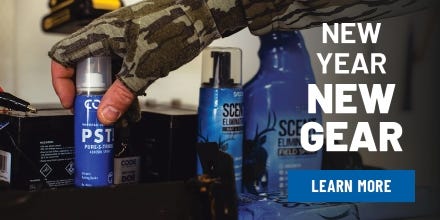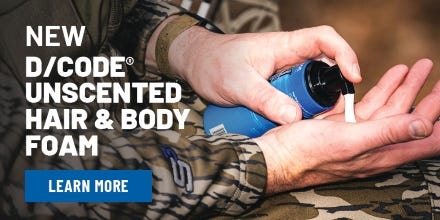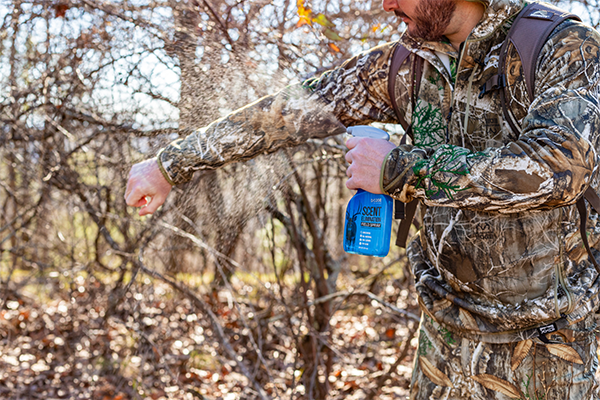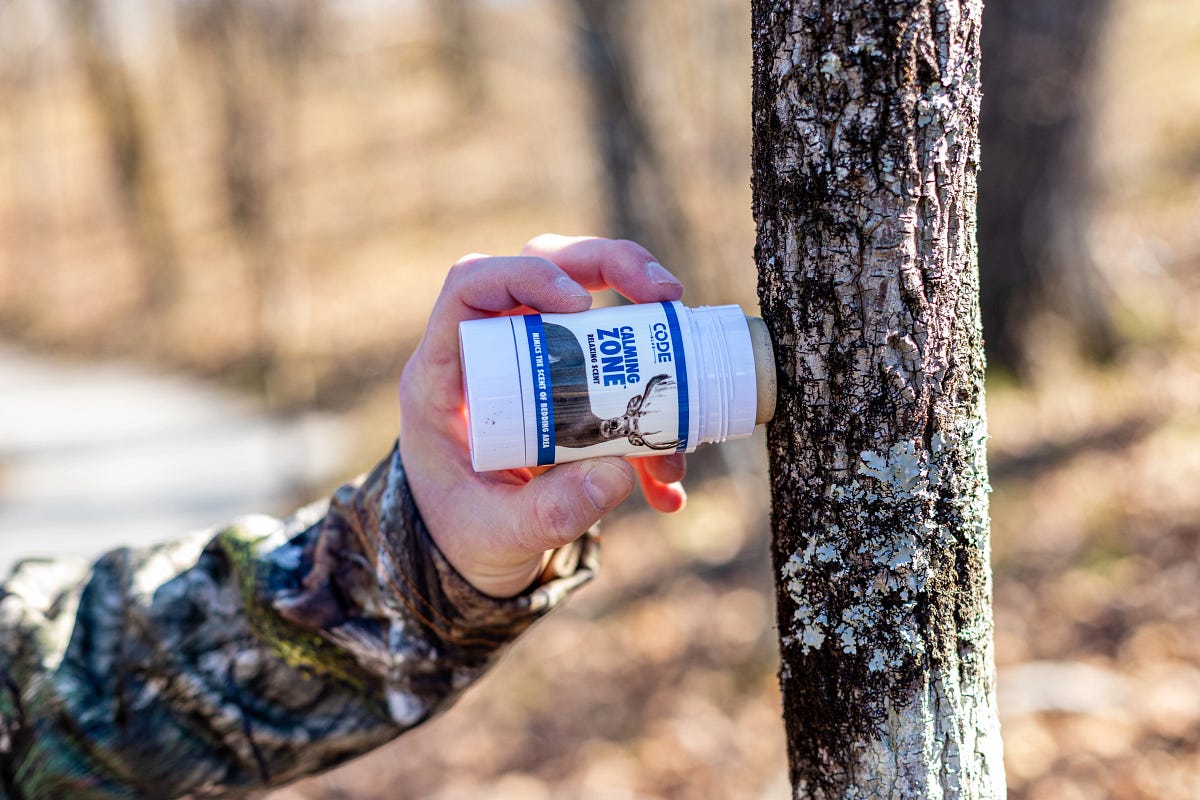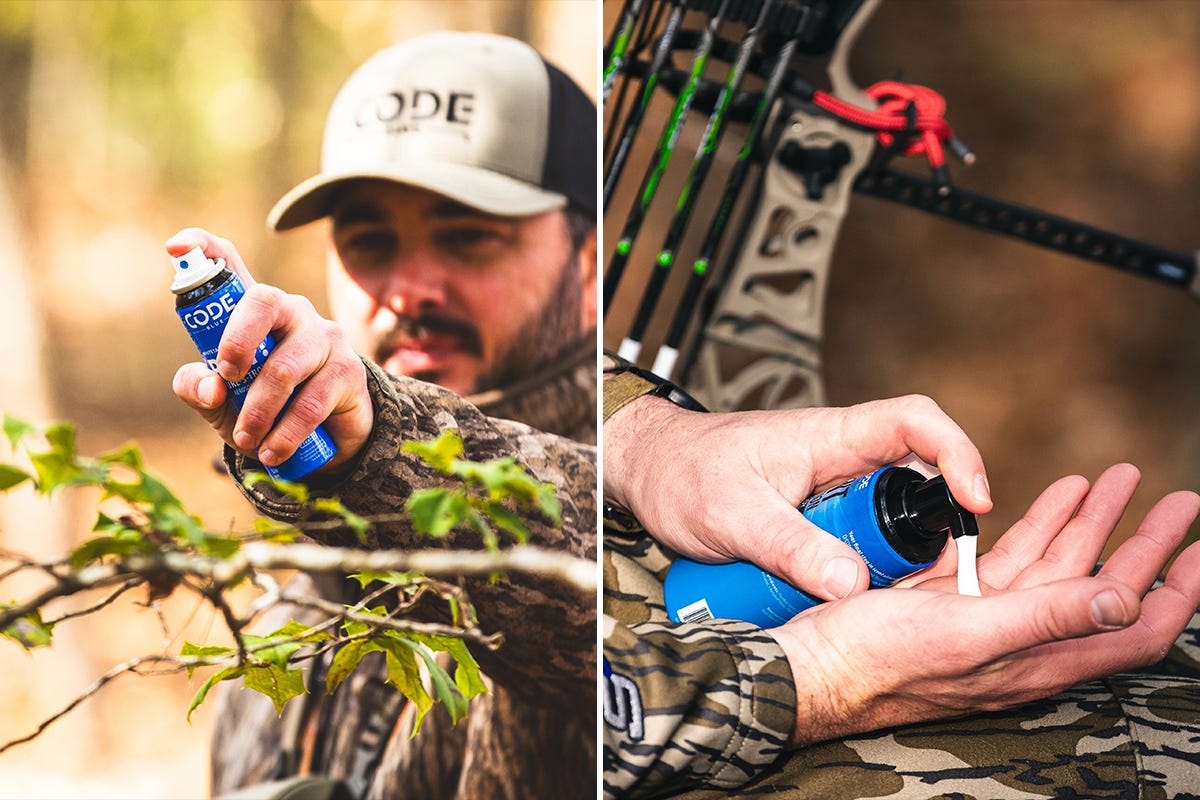- Mar 5, 2019
The Science of Deer Scent
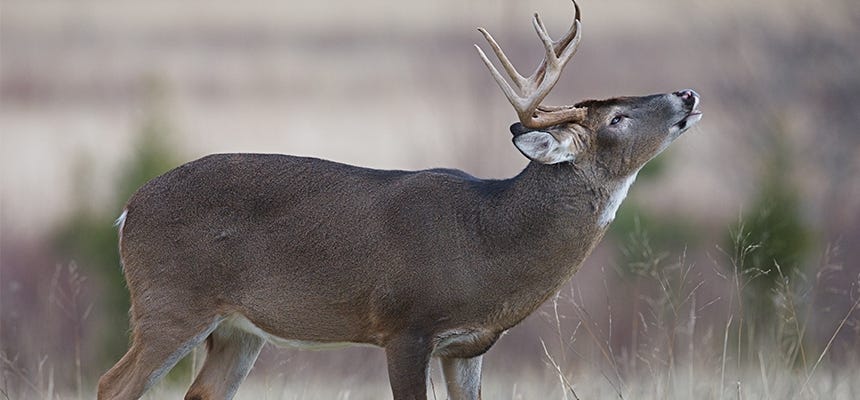
Every hunter knows that deer have a remarkable sense of smell, but just how well can they smell? While there is no research offering specific measurements of a deer’s olfactory abilities, Steve Ditchkoff, professor in wildlife ecology and management at Auburn University, says it’s estimated that a deer can smell at least 1,000 times better than a human.
“Essentially, what you find in the animal kingdom, is the length of the animal’s rostrum (nose) indicates how well it can smell,” Ditchkoff said. “For example, cats don’t have a good sense of smell compared to other animals, due to a short rostrum. But, some breeds of dogs, such as Labradors, have a great sense of smell, thanks to their long rostrums.”
Ditchkoff says a deer’s strong sense of smell plays a vital part in three important areas of a deer’s life — avoiding predators, locating food and selecting a mate.
Avoiding Predators
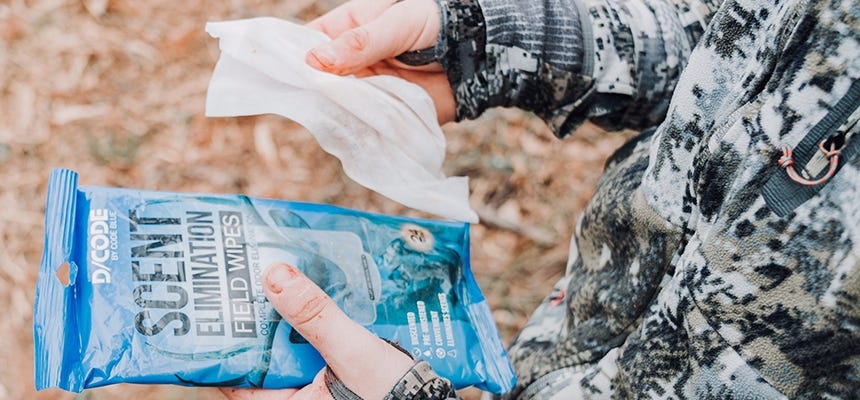
Of course, the whitetail’s sensitive nose can make it a challenge to hunt, that’s why it’s important for hunters pursuing deer to be as scent-free as possible.
“While you want to be as scent-free as possible throughout the entire hunt, I believe it is most important while you are walking to and from your hunting setup, because that’s when you leave a trail of scent particles behind,” Ditchkoff said. “A deer may have no idea you’re in the area while you’re hunting from a stand or blind, but when the deer walks through the area after you’ve walked through, it knows you’ve been there. If you frequently hunt that area, the deer will begin to pattern you, much like you may pattern a particular deer or herd of deer.”
For this reason, it’s a good idea to utilize scent-elimination products, such as the D/CODE line of products. Designed for use on your clothing, hair and body, D/CODE products boast the scent-elimination technology of medical grade silver nanoparticles to eliminate scent. In fact, this medical-grade technology eliminates 99.9% of odor. Spraying down, wiping down and bathing with D/CODE sprays, wipes, body wash and shampoos help conceal your scent so you can remain undetected regardless of wind direction.
Washing clothes with D/CODE Laundry Detergent not only cleans and deodorizes clothing, but clothing treated with this detergent absorbs game-spooking odors in camp and during the hunt as well. The D/CODE Dryer Sheets take garment-scent control to the next level with even more odor-destroying properties.
Of course, cover scents also offer a great option for concealing your scent. Designed to mask human odor, Code Blue’s Calming Zone put deer at ease with the smell of a deer bedding area. This scent is collected from natural bedding areas and the smell of other deer puts incoming deer at ease.
Locating Food

Deer spend the majority of their time eating. In fact, it’s estimated that a deer eats approximately 1 ½ tons of food a year and they rely heavily on their noses to locate it.
“Because white-tailed deer have the ability to detect odors on par with dogs and other species that have incredible olfactory abilities, deer have the potential to detect novel food sources from considerable distances,” Ditchkoff said. “Food attractants, which typically have a fairly strong odor to them, can undoubtedly be detectable from hundreds of yards in some cases.”
That’s how whitetail attractants take advantage of a deer’s remarkable ability to smell food sources from great distances. Attractants are specifically blended to draw in whitetails and establish a pattern of repeat visits to your feeding site.
Selecting a Mate
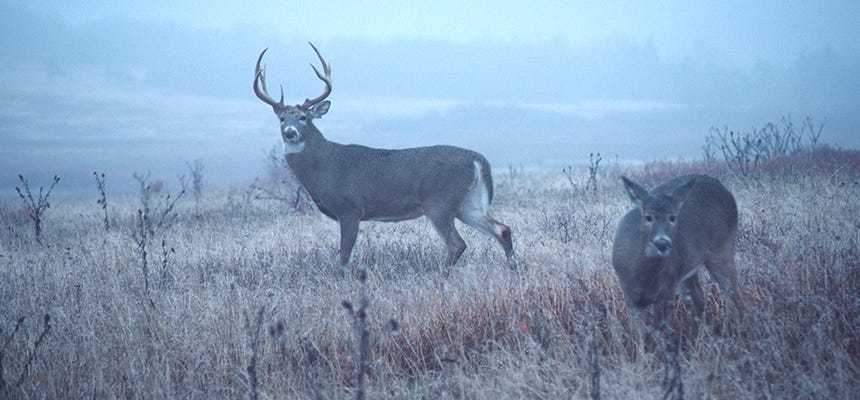
Finally, deer rely heavily on their noses to find a mate. In fact, reproducing is the number one activity focus throughout a deer’s life.
“The main objective of every animal is to pass along its genes to the next generation,” Ditchkoff said. “Everything an animal does, from eating, to avoiding predators, to mating, to protecting its young is done to ensure the future of its species, and the ability to detect certain scents plays a vital role in this process.”
Code Blue’s whitetail urine, estrous and tarsal gland scents are designed to take advantage of a buck’s strong desire to mate. These scents, which are taken from a single animal for “true-to-life” effectiveness are designed to lure a trophy buck into range. Most scent companies blend buck and doe urine in their bottles, resulting in the bottles all smelling the same. A problem arises when several hunters use the same urine blend in an area. If a hunter spooks a buck that has smelled that scent, the buck will get spooked again if it smells that same blend somewhere else. He’ll associate it with the noise or danger that scared him and will not enter the area. Single-source urines, such as Code Blue, do not create this problem.
While a deer’s remarkable sense of smell can create a challenge for hunters, the wise hunter can also use it to his or her advantage by utilizing scent-conscious hunting techniques and high-quality scent-elimination products and attractants to outsmart a deer’s sensitive nose.

